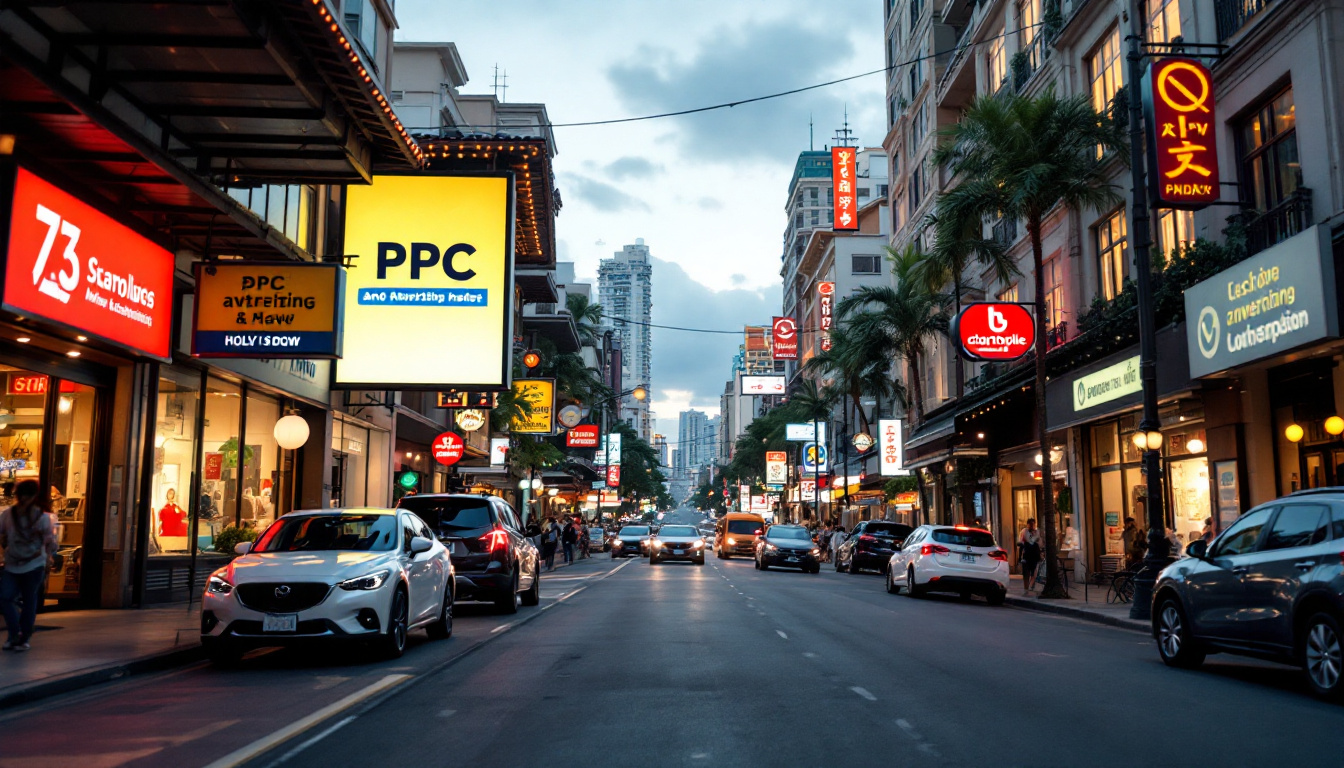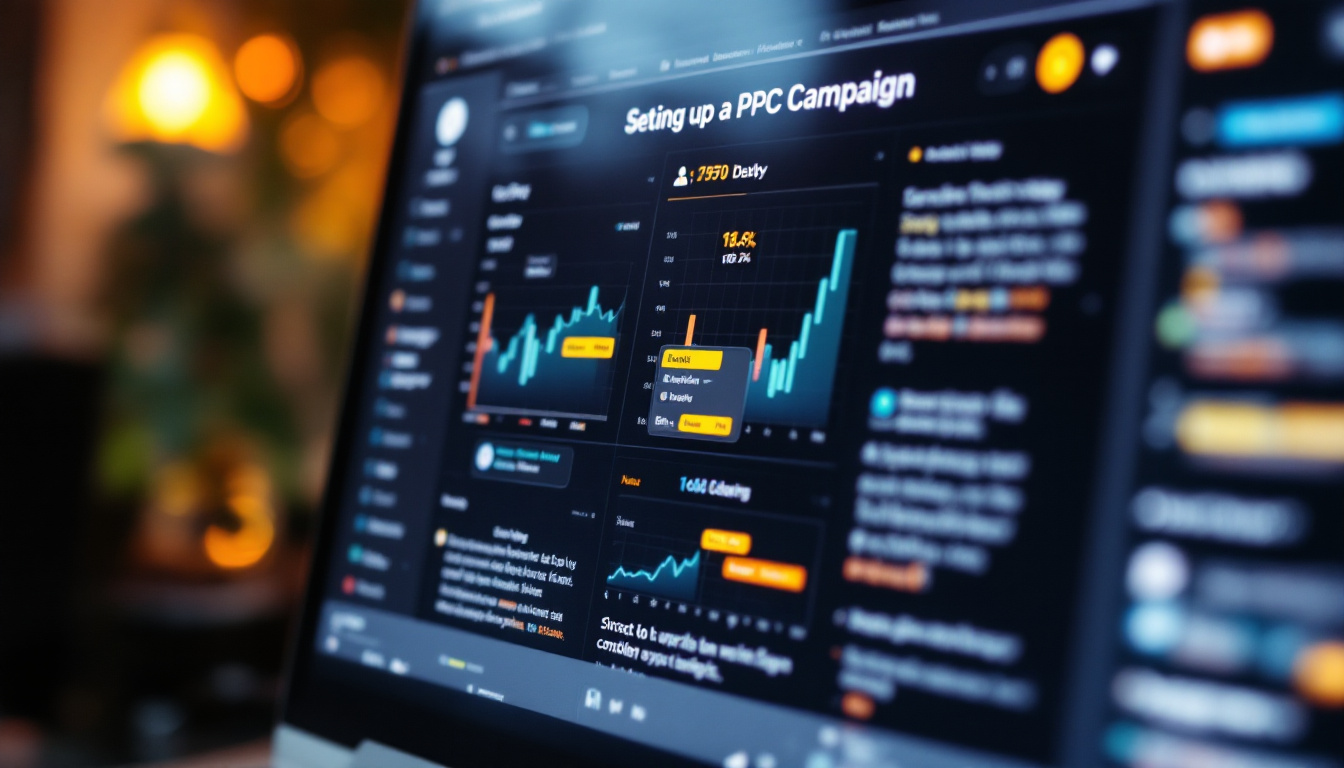The Beginner's Guide to PPC Advertising in Honolulu, HI

PPC (Pay-Per-Click) advertising is a powerful tool for businesses looking to drive traffic and increase visibility online. In Honolulu, HI, where competition can be fierce, utilizing PPC effectively can make a significant difference. This guide will walk you through the fundamentals of PPC advertising, its relevance for businesses in Hawaii, and practical steps for setting up successful campaigns.
What is PPC and how does it work?
PPC is an online advertising model where advertisers pay a fee each time their ad is clicked. Essentially, it’s a way of buying visits to your site rather than earning them organically. The most popular platform for PPC advertising is Google Ads, but there are other options like Bing Ads and social media platforms such as Facebook and Instagram. Each platform offers unique targeting options and ad formats, allowing advertisers to tailor their campaigns to reach specific audiences effectively. For instance, Facebook allows for demographic targeting, meaning ads can be shown to users based on age, location, interests, and even behaviors, enhancing the likelihood of engagement.
The mechanism of PPC is relatively straightforward. Advertisers bid on keywords that they believe potential customers will type into search engines. When users search for those keywords, the ads will appear at the top or bottom of the search results, depending on various factors such as the quality of the ad, bid amount, and relevance to the search terms. This bidding system operates on a model known as the Ad Auction, where multiple advertisers compete for the same keyword, and the winning ads are determined not just by the highest bid, but also by the ad's quality score, which takes into account click-through rates and landing page experience. This ensures that users are presented with ads that are not only relevant but also engaging.
PPC campaigns can provide immediate traffic, which is beneficial for time-sensitive promotions or businesses looking to gain instant visibility. Understanding how to create effective ad campaigns is crucial for making the most of this advertising strategy. Advertisers must conduct thorough keyword research to identify the most relevant and cost-effective keywords for their business. Additionally, crafting compelling ad copy and designing eye-catching visuals can significantly impact click-through rates. Monitoring and optimizing campaigns regularly is also essential; this includes adjusting bids, testing different ad formats, and analyzing performance metrics to ensure that the advertising budget is being utilized efficiently. By leveraging these strategies, businesses can maximize their return on investment and achieve their marketing goals more effectively.
Why PPC is ideal for businesses in Honolulu, HI
Honolulu is a vibrant market with a diverse array of businesses, from tourism and hospitality to local services and retail. Given this competitive landscape, PPC advertising can be particularly beneficial for several reasons:
- Targeted Reach: PPC allows businesses to target specific demographics, geographic areas, and user interests. For instance, if your business caters to tourists, you can target ads to users searching for travel-related content in Honolulu.
- Budget Control: One of the significant advantages of PPC is its flexibility in budgeting. Businesses can set daily spending limits, ensuring they only pay for what they can afford. This is especially important for small businesses in Honolulu operating on tight budgets.
- Measurable Results: With PPC, you can track the effectiveness of your campaigns in real-time. Metrics such as click-through rates (CTR) and conversion rates give you insights into what’s working and what needs improvement.
The dynamic nature of PPC makes it an excellent choice for businesses in Honolulu, allowing them to adapt their strategies based on market trends and consumer behavior. Additionally, the seasonal influx of tourists to Honolulu provides a unique opportunity for businesses to capitalize on peak times through targeted PPC campaigns. For example, during the summer months or around major holidays, businesses can ramp up their advertising efforts to attract more visitors, ensuring they remain top-of-mind for potential customers.
Moreover, the integration of local SEO with PPC can further enhance visibility. By optimizing ad copy and keywords to include local terms, businesses can ensure they appear in searches relevant to both locals and tourists alike. This dual approach not only increases the chances of attracting immediate customers but also helps build brand recognition within the community, fostering long-term loyalty among residents who may return for repeat business.
How to set up a PPC campaign step-by-step
Setting up a PPC campaign can seem daunting at first, but breaking it down into manageable steps makes the process easier. Here’s a step-by-step guide:

- Define Your Goals: Before you start, clarify what you want to achieve. Whether it’s increasing website traffic, generating leads, or boosting sales, having a clear objective will guide your campaign strategy.
- Conduct Keyword Research: Identify keywords relevant to your business and target audience. Tools like Google Keyword Planner can help you discover terms that are commonly searched by potential customers.
- Create Compelling Ads: Write engaging ad copy that grabs attention and encourages clicks. Include a strong call to action and ensure that the ad is relevant to the keywords you're targeting.
- Set Up Targeting: Choose your target audience based on demographics, interests, and geographic location. For Honolulu businesses, focusing on local targeting can enhance the effectiveness of your campaigns.
- Establish a Budget: Decide how much you want to spend daily or monthly on your PPC campaigns. Ad networks typically operate on a bid system, meaning that you can set the maximum amount you're willing to pay for a click.
- Monitor and Optimize: After your campaign goes live, track its performance. Use analytics tools to analyze the data and make necessary adjustments to improve results.
By following these steps, you can create a robust PPC campaign that targets the right audience and drives traffic to your business.
Additionally, it’s important to continually test different elements of your campaign. A/B testing can be particularly effective; by running variations of your ads, you can determine which headlines, images, or calls to action resonate best with your audience. This iterative process not only enhances engagement but also maximizes your return on investment. Furthermore, consider the importance of landing pages. Ensure that the pages your ads lead to are optimized for conversions, providing a seamless experience that aligns with the ad’s promise.
Lastly, keep an eye on your competitors. Analyzing their PPC strategies can provide valuable insights into what works and what doesn’t in your industry. Tools like SEMrush or SpyFu can help you uncover the keywords they are bidding on and the types of ads they are running. This competitive analysis can inform your own campaign adjustments, ensuring that you stay ahead in the ever-evolving digital landscape.
Tips for choosing the right PPC keywords
Selecting the right keywords is crucial for PPC success. Here are some tips to help you choose effectively:
- Focus on Relevance: Choose keywords that are directly related to your products or services. Relevant keywords attract the right audience and improve your chances of conversion.
- Consider User Intent: Understand the intent behind the keywords. Are users looking for information, making a purchase, or seeking services? Tailor your strategy based on their search intent.
- Use Long-Tail Keywords: While short keywords may have high search volume, long-tail keywords tend to be less competitive and more specific, often leading to higher conversion rates.
- Analyze Competitors: Check what keywords your competitors are targeting. Analyzing their strategies can provide insights into potential keywords you might have overlooked.
- Test and Refine: Continuously test different keywords in your campaigns. Regularly check performance and refine your keyword list to focus on the ones yielding the best results.
Strategically choosing your keywords can dramatically impact your campaign's performance and return on investment.
How to track and measure success in PPC
Once your PPC campaigns are up and running, tracking and measuring success is vital for adjustments and improvements. Here are some essential metrics to monitor:

- Click-Through Rate (CTR): This metric indicates the percentage of people who click on your ad after seeing it. A high CTR suggests that your ad is relevant and appealing to users.
- Conversion Rate: This measures the percentage of users who take the desired action after clicking on your ad, such as making a purchase or signing up for a newsletter. A high conversion rate is a sign of effective targeting and copy.
- Cost Per Click (CPC): This metric shows how much you pay for each click. Monitoring the CPC helps manage your budget and ensure that your campaigns remain cost-effective.
- Return on Investment (ROI): Calculating ROI helps you understand the profitability of your campaigns. Higher ROI indicates successful spending on PPC ads.
Utilizing tools like Google Analytics in conjunction with your PPC platform can provide valuable insights that facilitate informed decisions, leading to improved campaign performance.
Conclusion
In conclusion, PPC advertising presents an excellent opportunity for businesses in Honolulu, HI to enhance their online marketing efforts. By understanding what PPC is, why it’s beneficial for local companies, and how to implement effective campaigns, businesses can leverage its power to attract customers and boost sales. Following clear strategies for keyword selection and performance monitoring ensures that your PPC campaigns contribute positively to your overall marketing objectives.
Start small, continually test, and adapt your strategies based on insights gained from tracking success. With the right approach, PPC can become a cornerstone of your digital marketing strategy.

As a Google Ads expert, I bring proven expertise in optimizing advertising campaigns to maximize ROI.
I specialize in sharing advanced strategies and targeted tips to refine Google Ads campaign management.
Committed to staying ahead of the latest trends and algorithms, I ensure that my clients receive cutting-edge solutions.
My passion for digital marketing and my ability to interpret data for strategic insights enable me to offer high-level consulting that aims to exceed expectations.